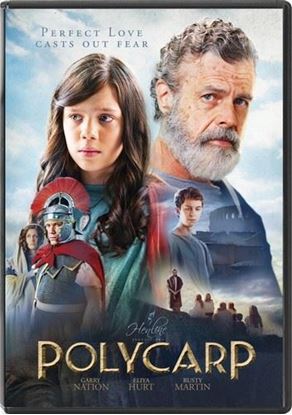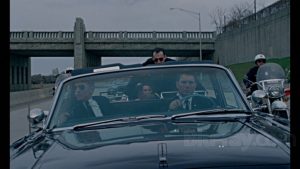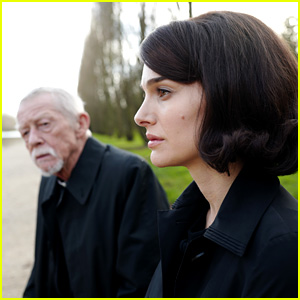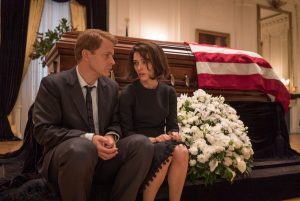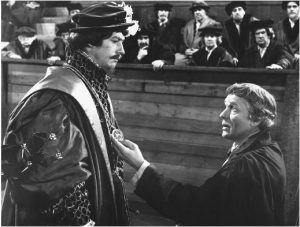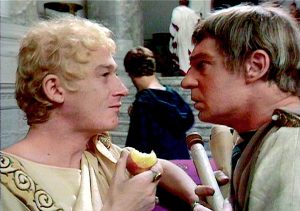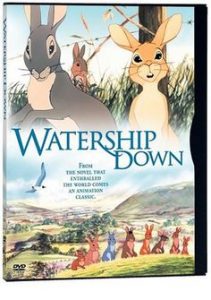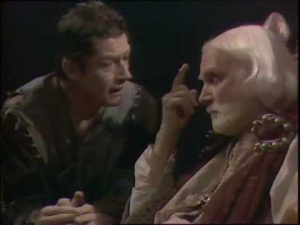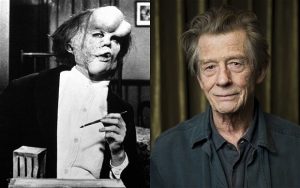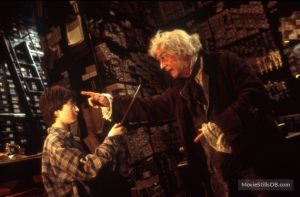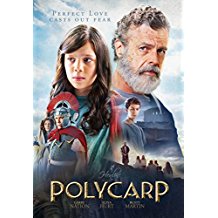
Now if you know anything about the background of Polycarp, the Christian Church father and martyr of the second century, then that might seem self evident. His patient faithfulness to Christ in the face of brutal persecution, his tutorship under Saint John, the documentation of the New Testament, his correction of heretics, the survival of Polycarp’s Letter to the Philippians, the flames which would not touch him as he stood tied to the stake. And that is all true. But I refer here not to the man, but to the faithful and faith filled movie about this incredible man’s life.

Polycarp is a wonderful movie – seen from the point of view of Anna, a pagan little girl – movingly portrayed by Eliyan Hurt, saved from slavery by a Christian family. We are given a vision of the early Christian persecutions by the Romans from the unusual perspective of the every day life of the citizens of Smyrna. Christianity is the center about which the family of Elias and Melina and their friends move and find their purpose, and Polycarp is their leader, mentor, teacher, and friend.

All the performances are quite good:
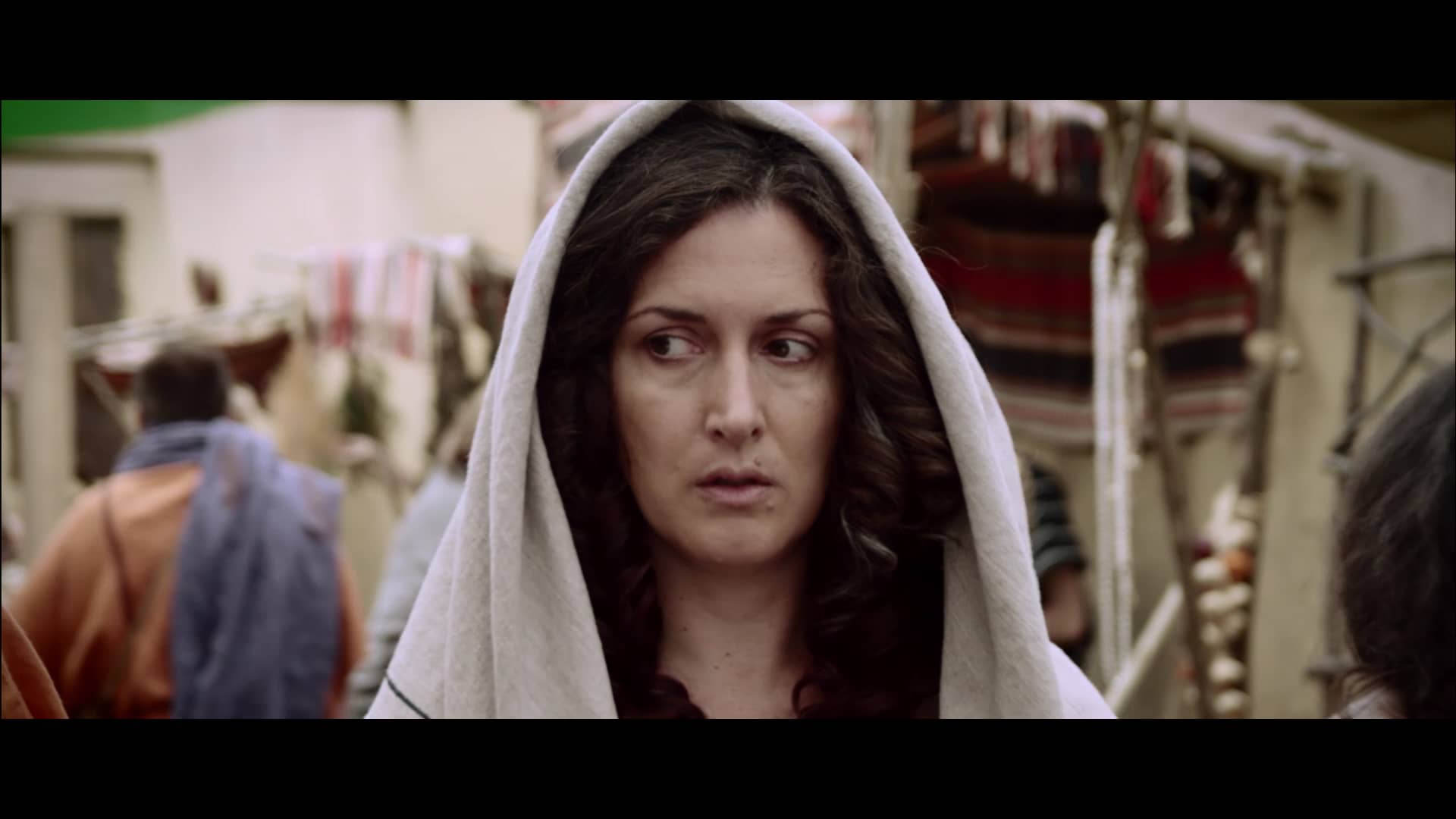
Ilse Apestegui portrays Melina, Anna’s adopted mother. An opera singer she has transitioned to the big screen with wonderful sensitivity. Elias is played by Curt Cloninger – who brings a fresh hominess as the patriarch of the family.
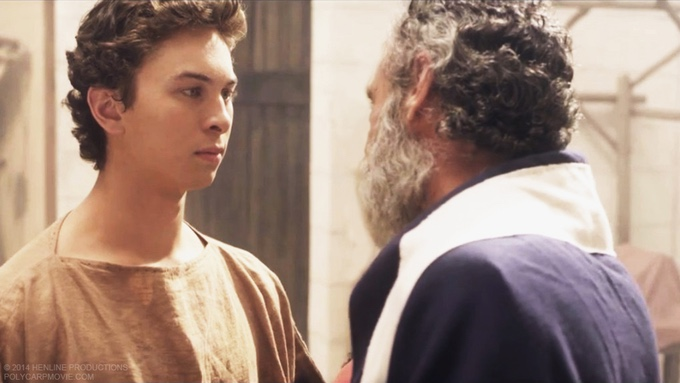
Germanicus is portrayed by Rusty Martin (previously seen in Courageous) Anna’s adopted brother and a teenager who must, fittingly enough, be, himself, courageous in the face of the entire force of Roman authority in Smyrna.
The portrayal of Polycarp is, of course, the essential key to the successful conveyance of this ministerial movie. As portrayed by Garry Nation, Polycarp is an every man brought to a higher calling. And Garry Nation does more than just bring Polycarp to life, he imbues him with a vulnerable relatability not often seen in the portrayal of Christian saints. The words from Scripture seem to come as naturally to him as Shakespeare does to Kenneth Branagh. It’s not easy to express lines so well known in a way which implies that you heard them recently from the mouths of the authors. But Mr. Nation manages this incredible task with apparent ease.
And it would only be logical that Polycarp would be so familiar with the Gospels as there are long beautifully lit shots of him in the scriptorium, lovingly transcribing the teachings of Jesus’ apostles. He tells his friends and neighbors – and even his enemies – the Good News of the Scriptures not as though they are distant proclamations to which we should stiffly obey, but as friends which we want to embrace and take into our hearts and souls. And not surprisingly Mr. Nation can recite this dialogue with such heartfelt conviction as he started out as a conventional minister – coming recently to the decision that his ministerial could best be served by expanding into film and authorship.
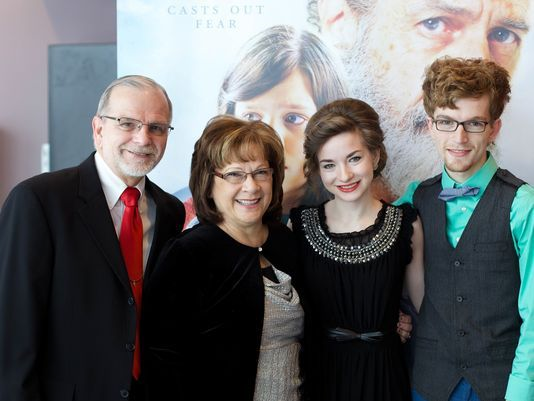
While all of this is amazing enough for an indie film on a constrained budget – NOW for the truly miraculous aspect of this film. The dialogue is sensitively and artfully crafted – conveying the history and scriptures in a natural way. There is humor and drama – every day living of Christians at a momentous time in both history and faith – the script would have challenged even an experienced writer with a number of similar scripts under their belt. But this script was written by Jerica Henline – only 18 years old when she wrote the script. And even more striking – the director was her brother, Joe Henline, only 20 at the time of filming. Ms. Apestegui mentions in the “Making of” documentary, a bonus to the DVD Polycarp, (which can be purchased at Amazon), that when she arrived for her audition she took one look at the two young people and thought she had gone to the wrong place! – only to quickly discover these two youthful artists had complete command over the situation.
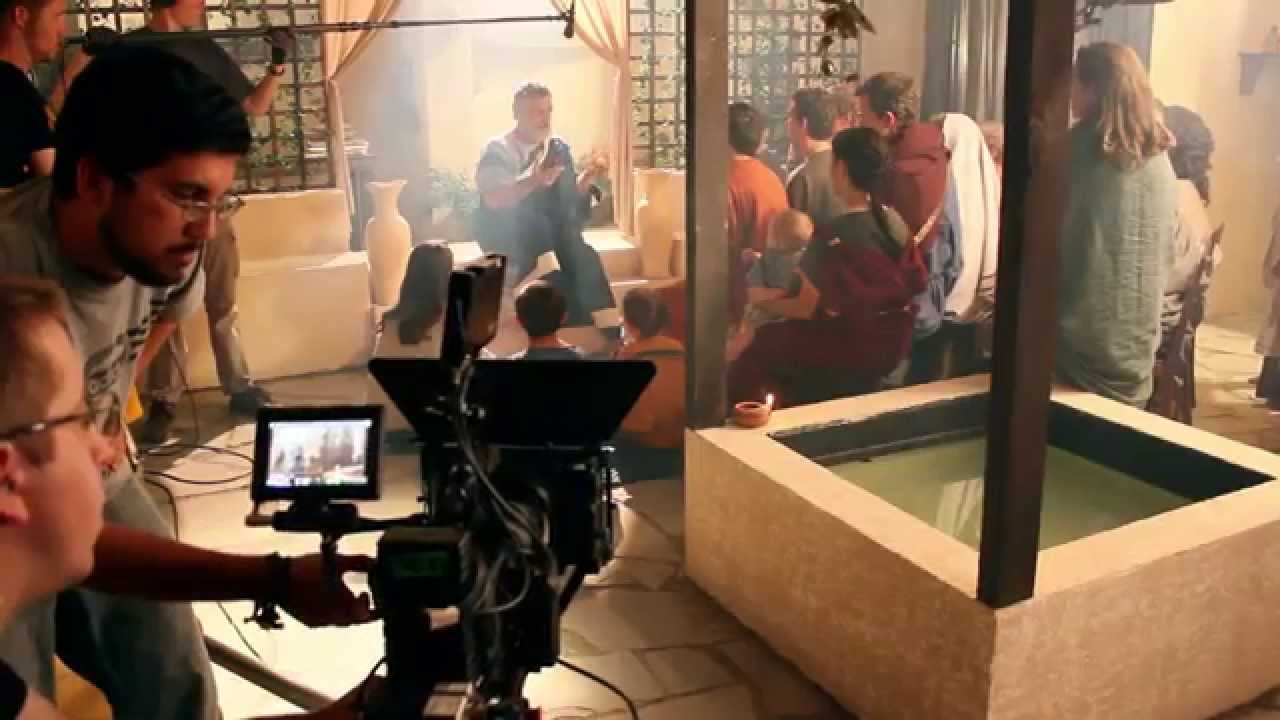
I watched the documentary on how this labor of Agape (highest love of God for man and man for God) came to be and I was immediately struck by the organization and professionalism exercised by the Henline siblings – way beyond their years.
Further almost the entire film was done Old School – on a back lot created in the back yard of their incredibly supportive parents’ manufacturing business. Using movable walls they managed about 30 sets – from the vast expanse of a Roman coliseum to the intimacy of the previously mentioned scriptorium. There were fights and palaces, massive crowds and shots along rivers. While CGI was used a good deal, it was quite clever and often difficult to tell where reality ended and CGI began.
Joe Henline commanded a cast of about 30 and a crew of 50 – mostly also young adults – with the confidence of a young Spielberg. I have had the pleasure and fortune to interview both the Henlines and Garry Nation and will be putting the interview segments on a subsequent blog. The Henlines are delightful, personable and eminently confident young people with a true gift for faith filled film making.
I look forward with great anticipation to what their future in movies holds. As our country in particular and Christianity worldwide faces new waves of persecution – politically, legislatively, culturally, educationally, and physically – the Henlines have placed themselves squarely on the front line of a new force, to fight back, to be the light with film ministry – to guide our country and the world to Judeo-Christian philosophy.

